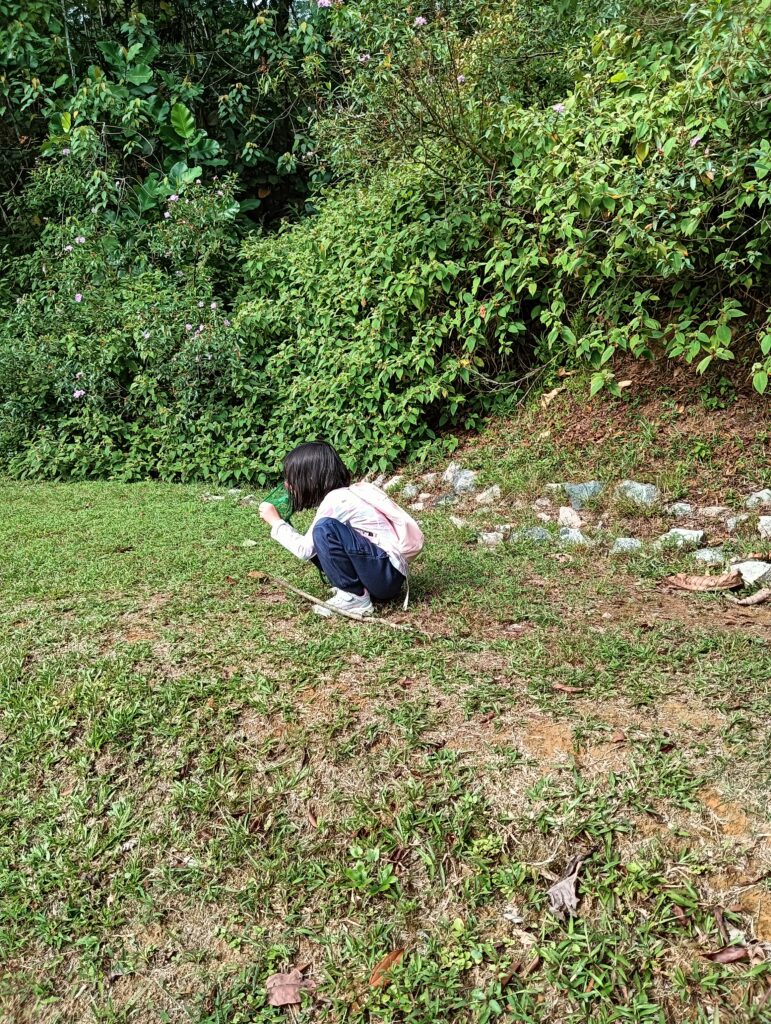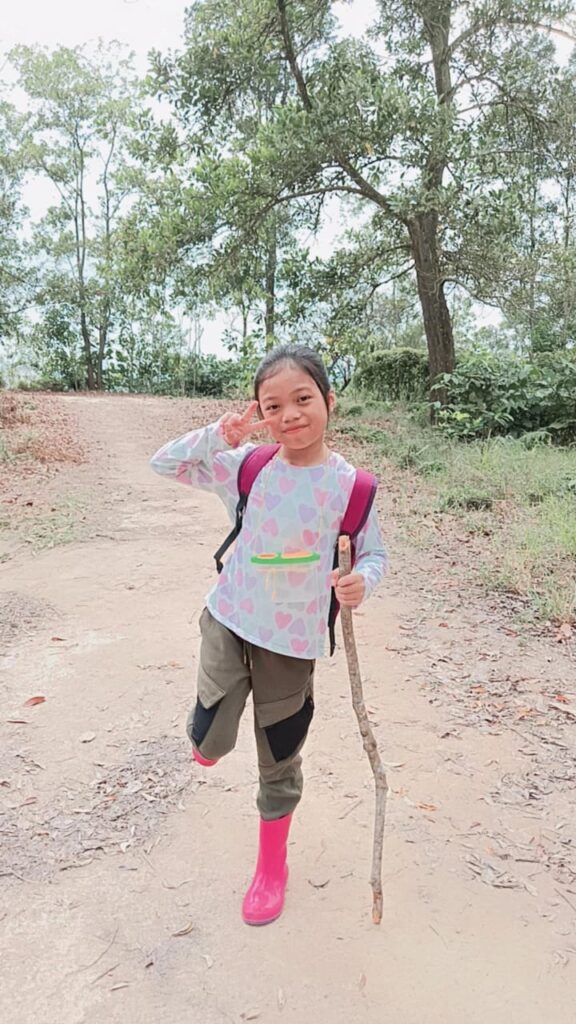More Green Time, Less Screen Time Part 2: Building Confidence and Adventure through Nature Exploration
Climbing, balancing, and exploring foster confidence and decision-making skills.
In addition to fostering resilience, nature immersion plays a key role in encouraging healthy risk-taking behaviours. Risk-taking is a natural part of childhood exploration and learning. Healthy risk-taking involves activities challenging children within safe boundaries, helping them learn their limits and build courage. Taking risks not only builds confidence but also shows children what they are capable of achieving.
Nature immersion provides an ideal environment for such activities. Climbing rocks, balancing on logs, and exploring new trails in Malaysia’s diverse landscapes exemplify how nature encourages children to push their boundaries in a controlled manner. For example, a child might climb a sturdy tree branch, discovering their physical strength while enjoying the thrill of height. Lessons learned from failure are just as important as those learned from success!

These activities teach children to assess risks and make decisions, crucial skills for personal and academic success. When children engage in natural risks, they learn about cause and effect, safety, and the consequences of their actions. This experiential, hands-on learning is far more impactful than theoretical knowledge gained from screens. Moreover, nature’s unpredictability teaches children to handle uncertainty and develop a sense of adventure. Unlike structured indoor activities, nature does not come with pre-set rules and outcomes, allowing children to engage in open-ended play.
This freedom fosters independence and self-reliance as children learn to navigate and influence their experiences. While some parents may worry about the potential dangers of outdoor activities, it is important to assess risks and provide guidance. Creating a safe environment where children can explore and learn allows them to take healthy risks while building essential life skills. By encouraging these adventures in nature, we help cultivate confident, resilient individuals ready to face the world.
Tip: Set aside an hour every weekend for family nature time, whether a nature walk activity at a nearby park, a hike in the hills, or a simple outdoor game in your backyard. By prioritising these experiences, you can help your child cultivate confident, resilient individuals ready to face the world.
From Screens to Scenery: Encouraging Nature Adventures for Malaysian Families
While technology is integral to modern education and entertainment, balancing screen time with green time is essential. Parents and educators in Malaysia can play a pivotal role in encouraging nature immersion. Creating opportunities for outdoor activities, such as weekly nature walks at FRIM Forest Reserve, establishing small-scale school gardening projects, and organising family field trips to places like Zoo Negara or Melaka Butterfly & Reptile Sanctuary—can help integrate green time into children’s daily routines. Additionally, unstructured nature playtime after school can foster hands-on experiences and creativity.
To make this balance even more effective, parents can set limits on screen time while offering engaging alternatives. For example, a family could turn off devices for one weekend afternoon and explore a local nature reserve together, discovering the joy of outdoor adventures. By prioritising green time alongside screen time, we can help our children develop healthier habits, build resilience, and appreciate the beauty of the natural world. Let us encourage a lifestyle where outdoor exploration is as exciting as digital entertainment!
Furthermore, policymakers and communities can support this balance by ensuring access to parks, playgrounds, and natural reserves. Providing safe, welcoming spaces where children can connect with nature is crucial. Additionally, the movement to integrate nature-based learning into the educational curriculum worldwide should also be adopted in Malaysia, as it can enrich academic experiences, foster healthy development, deepen children’s appreciation for the environment, and prepare them to be sustainable stewards of the future.
Conclusion
By embracing nature, we give our children the chance to grow into resilient, adventurous individuals shaped not just by the digital world but also by the natural beauty and unpredictability of the natural one. Let us ensure they get more green time, not just screen time. By working together – parents, educators, policymakers, and communities—we can create a healthier, more balanced lifestyle for our children that embraces both nature’s wonders and technology’s benefits.





